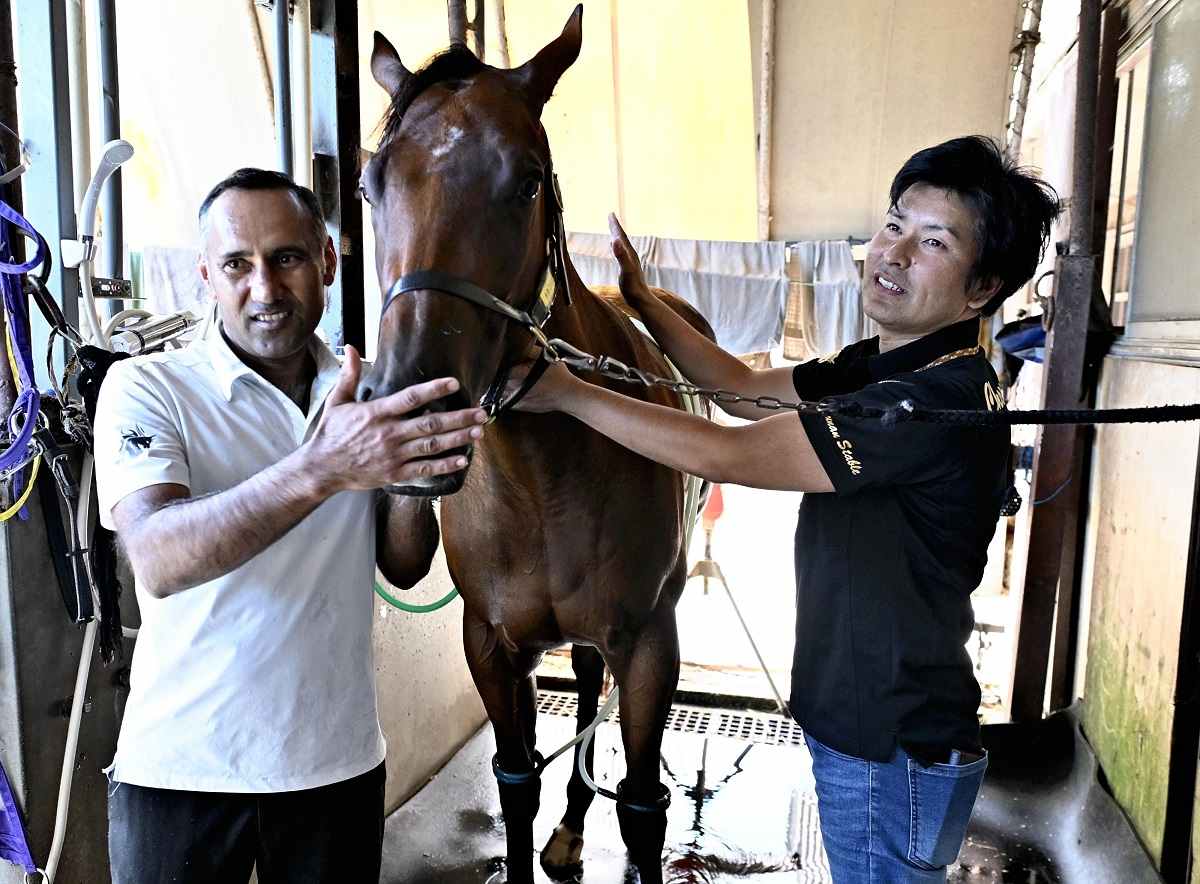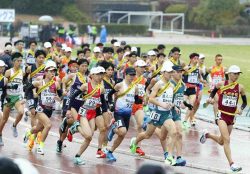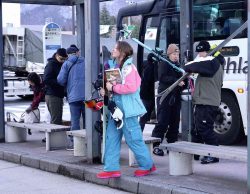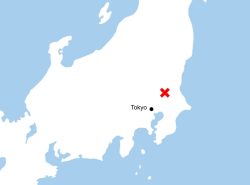Foreign Stable Hands Hired at Galloping Rates; Primarily Indian Nationals Increasingly Working at Regional Racecourses across Japan

Inda Jalam Singh, left, cares for a racehorse with horse trainer Kazuhiro Chonan at the Nishiwaki equestrian park in Nishiwaki, Hyogo Prefecture.
12:36 JST, October 22, 2024
Foreign stable hands are increasingly working at regional racecourses. Since the first hirings six years ago, over 340 are now caring for racehorses across the country. The reason behind this increase is a serious shortage of people applying for the job.
In mid-August, an Indian stable hand showered racehorses at the Hyogo prefectural Nishiwaki equestrian park in Nishiwaki, Hyogo Prefecture, where they are trained. Horse trainer Kazuhiro Chonan, 53, employs five Indian people, whom he instructs with simple English and gestures.
Inda Jalam Singh, 41, who has been working at the park since March 2021, lives with his wife and their three children — aged 8 to 12 — in a dormitory near the stable.
On weekdays when there are no horse races, Inda works from 1:30 a.m. to 8 a.m. and from 2 p.m. to 4 p.m. He cares for the horses, cleans up the stable and trains horses in the saddle. The base monthly wage is ¥225,000, and he also gets paid a part of cash prizes from races.
Inda also worked as a stable hand in the United Kingdom and Australia. He thought Japan would offer a good salary and an opportunity to learn a new culture. “My children have become accustomed to their new schools. I would like to work in Japan for a long period of time,” he said.
Diligent workers
To recruit the stable hands, a horse racing association and the municipality interview applicants as part of their screening process, and the trainers hire them.
Chonan, who is responsible for 26 racehorses for regional racing, began thinking of hiring foreigners around seven years ago. Until then, he had sourced stable hands from within Japan, but applicant numbers gradually dwindled. Even when he was able to secure new hires, many of them left their jobs after two or three months.
However, other trainers did not support his idea, saying such things as, “I cannot trust [foreigners]” and “Who will take responsibility if something happens?”
Addressing these concerns, Chonan spent two years appealing to the Hyogo prefectural horse racing association, the organizing body for horse races. He presented a plan outlining how to support the livelihood of foreign workers, including through providing food. In 2020, the association allowed him to hire foreign stable hands.
Because of its colonial history, India has a rich equestrian culture, and the country has many people already equipped with the skills necessary to work in stables.
Seeing Indian workers work diligently at Chonan’s stable, other trainers began hiring Indian stable hands one after another. As of Sept. 24, there were 39 Indians working at the equestrian park and other locations. “They are serious about their work. Skilled foreigners are now playing an essential role,” Chonan said.
Starting from Hokkaido
There are 15 regional racecourses across Japan. According to the Tokyo-based National Association of Racing, there were 2,332 stable hands as of April. Of them, 344 were foreigners, mostly Indian, according to interviews with associations organizing regional horse races and other sources.
Foreign stable hands hold a “skilled labor” status of residence, granted to foreigners who engage in work that requires specialized skills in specific areas. Stable hands fall under the category of “animal trainers” and 10 years’ experience is required to obtain the status.
The Hokkaido horse racing association was the first regional association to allow the employment of foreign stable hands, making three new hires in 2018. The number of foreign stable hands has since increased to 69 as of Sept. 1, with Indians making up the vast majority at 64. The association organizes classes on domestic horse racing rules and Japanese to increase retention.
At the Kochi horse racing association, 16 foreigners from Venezuela, the Dominican Republic and other countries were working as of Sept. 1. Those from Latin America worked at racetracks in their home countries so they were able to hit the ground running.
Meanwhile, the Japan Racing Association does not have any foreign stable hands despite also facing difficulties in hiring. In 2019, the association abolished their age restriction, making it so applicants no longer need to be younger than 28 years old to enroll in a dedicated training course at the JRA horse racing school.
"Sports" POPULAR ARTICLE
-

Speed Skater Yukino Yoshida Clinches Ticket to Milan
-

Yoshinobu Yamamoto Cheered by Los Angeles Lakers Fans at NBA Game
-

Kenta Maeda Joins Rakuten Eagles; Returns from American MLB to Japanese Pro Baseball for First Time Since 2015
-

Ukrainian Sumo Wrestler Sekiwake Aonishiki to be Promoted to Ozeki
-

Maruyama’s Ski Jump Streak Snapped
JN ACCESS RANKING
-

Keidanren Chairman Yoshinobu Tsutsui Visits Kashiwazaki-Kariwa Nuclear Power Plant; Inspects New Emergency Safety System
-

Imports of Rare Earths from China Facing Delays, May Be Caused by Deterioration of Japan-China Relations
-

University of Tokyo Professor Discusses Japanese Economic Security in Interview Ahead of Forum
-

Japan Pulls out of Vietnam Nuclear Project, Complicating Hanoi’s Power Plans
-

Govt Aims to Expand NISA Program Lineup, Abolish Age Restriction




















